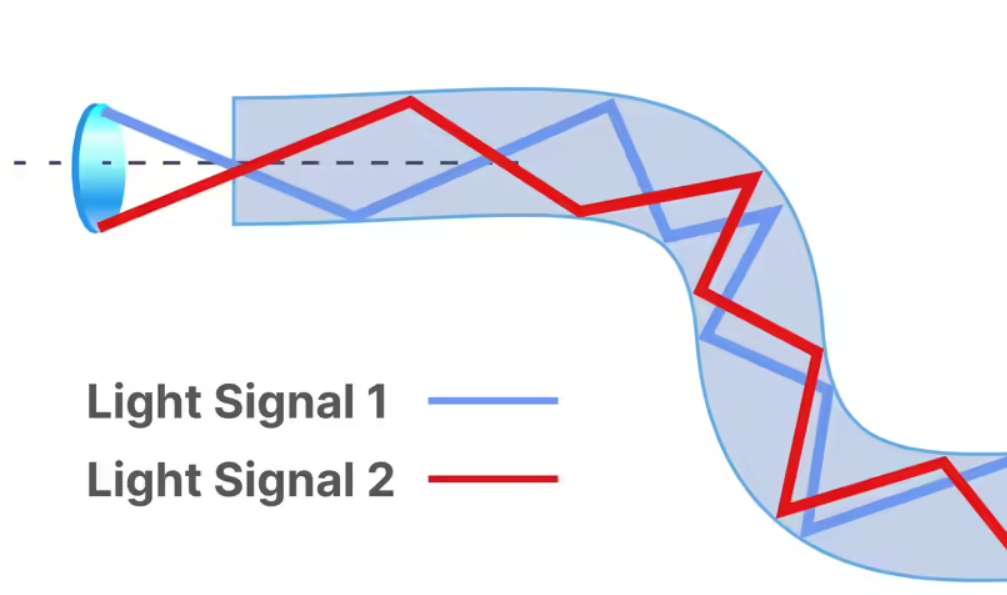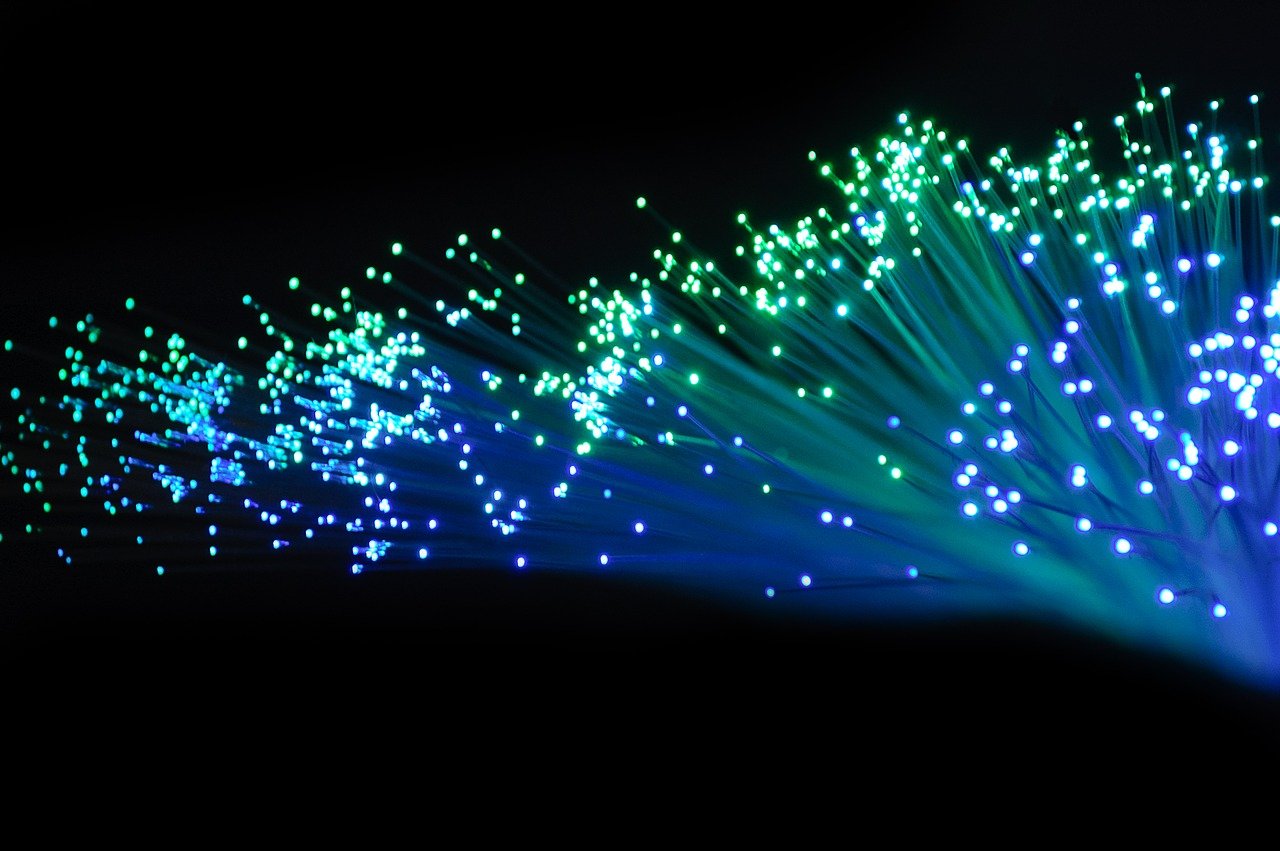Understanding How Optical Fibers Work: A Simple Explanation

A Peek into the World of Optical Fibers
What Are Optical Fibers?
Optical fibers, also known as fiber optics, are thin, flexible strands of glass or plastic that are used to transmit light signals over long distances. The basics of optical fibers lie in their ability to carry large amounts of data using pulses of light. This makes them crucial in modern communication and technology.
Why They Matter
The significance of optical fibers cannot be overstated. Their high bandwidth and low loss make them essential for transmitting information across vast distances with minimal interference. From internet connectivity to medical procedures, optical fibers play a pivotal role in various aspects of our daily lives.
The History of Optical Fibers
The journey of optical fibers from an idea to a reality is filled with innovation and perseverance.
From Idea to Reality
The concept of using light for communication dates back to the 19th century, but it wasn't until the mid-20th century that practical optical fibers were developed.
Key Milestones
Key milestones include the invention of the first fiber optic cable in the 1950s and the subsequent advancements in fiber optic technology that have revolutionized modern communication systems.
How Do Optical Fibers Work?
Now, let's delve into the fascinating science behind the functionality of optical fibers.
The Science Behind Optical Fibers
Light and Its Paths
The operation of optical fibers relies on the principles of light propagation. When light enters an optical fiber, it follows a path determined by the phenomenon of total internal reflection. This process ensures that the light signals remain confined within the core of the fiber, enabling efficient transmission over long distances.
Modes of Travel Within Fibers
Within optical fibers, light can travel through different modes. These modes represent distinct paths that light can take as it propagates through the fiber. Each mode corresponds to a unique trajectory, contributing to the versatility and efficiency of optical fiber communication systems.
Breaking Down the Process
From One End to the Other
The transmission of data through optical fibers occurs as pulses of light travel from one end of the fiber to the other. As these pulses propagate, they maintain their integrity and quality, ensuring reliable and high-speed data transfer.
Why Speed and Efficiency Matter
The speed and efficiency of optical fibers are paramount in modern communication networks. The ability to transmit vast amounts of data rapidly and with minimal loss is crucial for supporting various applications, including internet connectivity, telecommunication, and data-intensive processes.
Everyday Uses of Optical Fibers
Optical fibers are integral to various technological advancements, playing a crucial role in shaping the modern world.
Optical Fibers in Technology
Internet and Communication
The widespread use of optical fibers has transformed global communication networks. These fibers facilitate high-speed internet connections, enabling seamless data transmission across continents. The reliability and efficiency of optical fibers have revolutionized telecommunication, supporting real-time voice and video communication with unparalleled clarity.
Medical Marvels
In the field of medicine, optical fibers have paved the way for groundbreaking innovations. They are utilized in minimally invasive procedures such as endoscopy and laser surgery, providing physicians with precise visualization and treatment capabilities. Additionally, optical fiber-based sensors enable non-invasive monitoring of vital signs, enhancing patient care and medical diagnostics.
Optical Fibers in Our Daily Lives
Entertainment and Beyond
Optical fibers have enhanced our entertainment experiences by enabling high-speed data transfer for streaming services, online gaming, and virtual reality applications. The seamless transmission of audio and visual content through these fibers has redefined the entertainment landscape, offering immersive experiences to users worldwide.
The Future of Optical Fibers
As technology continues to advance, the potential applications of optical fibers are limitless. From augmented reality innovations to futuristic data communication systems, ongoing research and development aim to further optimize the capabilities of optical fiber technology for diverse industries.
Wrapping Up
As we conclude our exploration of optical fibers, let's recap the key takeaways and consider the future implications of this remarkable technology.
Key Takeaways
Simplifying the Complex
Optical fibers have simplified the complex process of data transmission by utilizing light signals to carry vast amounts of information. This streamlined approach has revolutionized communication networks, enabling rapid and reliable data transfer across various applications.
The Impact of Optical Fibers
The impact of optical fibers extends far beyond technological advancements. These innovative strands of glass and plastic have reshaped global connectivity, healthcare practices, and entertainment experiences. Their high-speed transmission capabilities and versatility have elevated the standards of modern living.
Looking Ahead
Innovations on the Horizon
As technology continues to evolve, ongoing innovations in optical fiber technology are poised to redefine numerous industries. From enhanced data transfer speeds to novel applications in diverse sectors, the future holds boundless possibilities for further optimizing the potential of optical fibers.
How We Can Stay Informed
Staying informed about the latest developments in optical fiber technology is essential for understanding its expanding role in our lives. Engaging with industry publications, attending relevant conferences, and exploring educational resources can provide valuable insights into emerging trends and applications.
In summary, optical fibers have not only transformed how we communicate and access information but also hold immense promise for shaping our future experiences across various domains.
Now that we've gained a comprehensive understanding of optical fibers, let's stay curious about their evolving impact on our world.
See Also
Maximizing Performance and Cost Efficiency of Fiber Optic Connections
Utilizing Fiber Optic Cables for Underground Installations
Discovering the Advantages of the 960 Core Fiber Optic Splice Enclosure
Uncovering the FTTR Invisible Fiber Cable: A Revolutionary Solution
Advantages of ADSS Fiber Optic Cables for Overhead Power Lines


